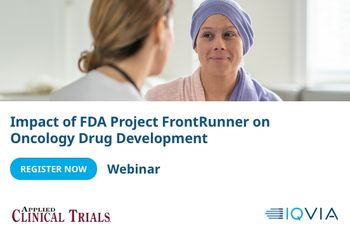
- Applied Clinical Trials-04-01-2022
- Volume 31
- Issue 4
Program Aims to Tap Africa's Potential in Pharmacometrics
Rik de Greef, senior vice president of global quantitative science services at Certara discusses the organization's training initiatives in Africa.
Rik de Greef, senior vice president of global quantitative science services at Certara, a biosimulation software and technology company, recently answered questions from Applied Clinical Trials on the organization’s training initiatives in Africa, viewed by Certara as an untapped pool for talent in pharmacometrics.
Though a well-established part of drug development, demand for biosimulation—the use of computer-aided models to simulate complex biological systems—is growing, necessitating the need for more experts, the company says.
Applied Clinical Trials: What inspired the Applied Pharmacometrics Training Fellowship in Africa and Certara’s investment in the program?
Rik de Greef: The fellowship program has been inspired by a number of factors that have nicely come together. Firstly, Pharmacometrics Africa has been providing training opportunities to many Africa-based scientists over the past years, which has brought them in touch with the methods and concepts of pharmacometrics. Still, a need was felt to train these scientists more in the applications of pharmacometrics to support decision-making in drug development. Certara shared this interest, as it wanted to broaden the global pharmacometrics talent base to be able to accommodate the demand of pharmaceutical clients for this bespoke skill set. Lastly, the academic and pharmaceutical partners are happy to contribute to the training of scientists from low- and middle-income countries but lack the infrastructure to do so. Our program brings these elements together and aims to concretely deliver a team of Africa-based pharmacometricians.
ACT: The announcement said that the first cohort would start in January 2022. How is that inaugural class progressing?
de Greef: Indeed, the inaugural class started with a virtual program in January. At this moment, the class is halfway through that part of the program. The class meets several days per week for classroom training and discussions. The students are very engaged, which makes for a great dynamic between them and the faculty of experienced pharmacometricians.
ACT: When are you taking applications for the next cohort?
de Greef: We are planning to run the program yearly. So, we probably will be taking applications for the 2023 cohort in the last quarter of this year.
ACT: Are there specific challenges to teaching the doctorate-level scientists virtually in Africa?
de Greef: There are no specific challenges to the teaching, it is the same as any type of virtual training environment. As faculty, you want to make sure that you maintain the engagement of the students during the training classes and in the course assignments.
ACT: The press release stated: “Successful fellows of this program will be considered as candidates to form the first Certara consulting team located in Africa.” What is your timeline for that?
de Greef: We are on track to have the first Africa-based consulting team for Certara start toward the end of this year, 2022.
Read more about Certara’s plans in Africa in ACT March’s Closing Thought
Articles in this issue
almost 4 years ago
Addressing the Cost Barrier to Inclusive Clinical Trialsalmost 4 years ago
DCT Risk/Benefit Profile: A Focus on Adherencealmost 4 years ago
Confidentiality in DCT: How to Utilize Third-Party Home Health Providersalmost 4 years ago
Digital Therapeutics and Decentralized Trials: A Match Made in Clinicalalmost 4 years ago
Awareness of Clinical Research Increases Among Underrepresented Groupsalmost 4 years ago
DCTs’ Broader and Multifaceted Implicationsalmost 4 years ago
Applied Clinical Trials April 2022 Issue (PDF)almost 4 years ago
FDA, Congress Re-Examine Accelerated Approval ProgramNewsletter
Stay current in clinical research with Applied Clinical Trials, providing expert insights, regulatory updates, and practical strategies for successful clinical trial design and execution.




